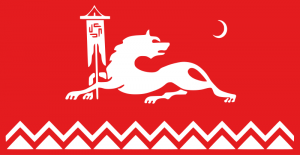Difference between revisions of "Language/Avaric/Grammar/Questions"
m (Quick edit) |
m (Quick edit) |
||
| Line 47: | Line 47: | ||
Asking questions is an important part of any language, and it's essential to understand the rules of grammar when forming questions in Avaric. We've covered the basics of how to form questions, as well as some more advanced topics. With practice, you'll be able to ask questions confidently and accurately in Avaric. | Asking questions is an important part of any language, and it's essential to understand the rules of grammar when forming questions in Avaric. We've covered the basics of how to form questions, as well as some more advanced topics. With practice, you'll be able to ask questions confidently and accurately in Avaric. | ||
<br><hr>If you have any questions, please ask them in the comments section below.<br>Feel free to edit this wiki page if you think it can be improved. 😎 | <br><hr>If you have any questions, please ask them in the comments section below.<br>Feel free to edit this wiki page if you think it can be improved. 😎 | ||
==Related Lessons== | |||
* [[Language/Avaric/Grammar/Plurals|Plurals]] | |||
* [[Language/Avaric/Grammar/Future-Tense|Future Tense]] | |||
* [[Language/Avaric/Grammar/Conditional-Mood|Conditional Mood]] | |||
* [[Language/Avaric/Grammar/Pronouns|Pronouns]] | |||
* [[Language/Avaric/Grammar/Negation|Negation]] | |||
* [[Language/Avaric/Grammar/Adjectives|Adjectives]] | |||
{{Avaric-Page-Bottom}} | {{Avaric-Page-Bottom}} | ||
Revision as of 22:54, 25 February 2023
Hi Avaric learners! 😊
In today's lesson, we will be learning how to ask questions in Avaric. Asking questions is an important part of any language, and it's essential to understand the rules of grammar when forming questions in Avaric. We'll cover the basics of how to form questions, as well as some more advanced topics.
Basic Question Formation
The basic structure for forming questions in Avaric is quite simple. All you need to do is add a question word at the beginning of the sentence. The most common question words are:
- Who?
- What?
- When?
- Where?
- Why?
- How?
For example, if you wanted to ask "What is your name?", you would say "What is your name?".
Yes/No Questions
Yes/no questions are questions that can be answered with either "yes" or "no". To form a yes/no question, you need to add the word "do" at the beginning of the sentence. For example, if you wanted to ask "Do you like Avaric?", you would say "Do you like Avaric?".
Tag Questions
Tag questions are questions that are added to the end of a statement. To form a tag question, you need to add the word "do" at the beginning of the statement, followed by the subject of the sentence. For example, if you wanted to ask "You like Avaric, don't you?", you would say "Do you like Avaric?".
Advanced Question Formation
Once you have mastered the basics of question formation, you can start to explore more advanced topics.
Question Words
In addition to the basic question words, there are many other words that can be used to form questions. These include words such as "which", "whose", "whence", and "whither".
Question Forms
There are also different forms of questions that can be used. These include rhetorical questions, indirect questions, and embedded questions.
Question Tags
Question tags are short phrases that are added to the end of a statement to turn it into a question. Common question tags include "isn't it?", "aren't they?", and "don't you?".
Conclusion
Asking questions is an important part of any language, and it's essential to understand the rules of grammar when forming questions in Avaric. We've covered the basics of how to form questions, as well as some more advanced topics. With practice, you'll be able to ask questions confidently and accurately in Avaric.
If you have any questions, please ask them in the comments section below.
Feel free to edit this wiki page if you think it can be improved. 😎
Related Lessons
